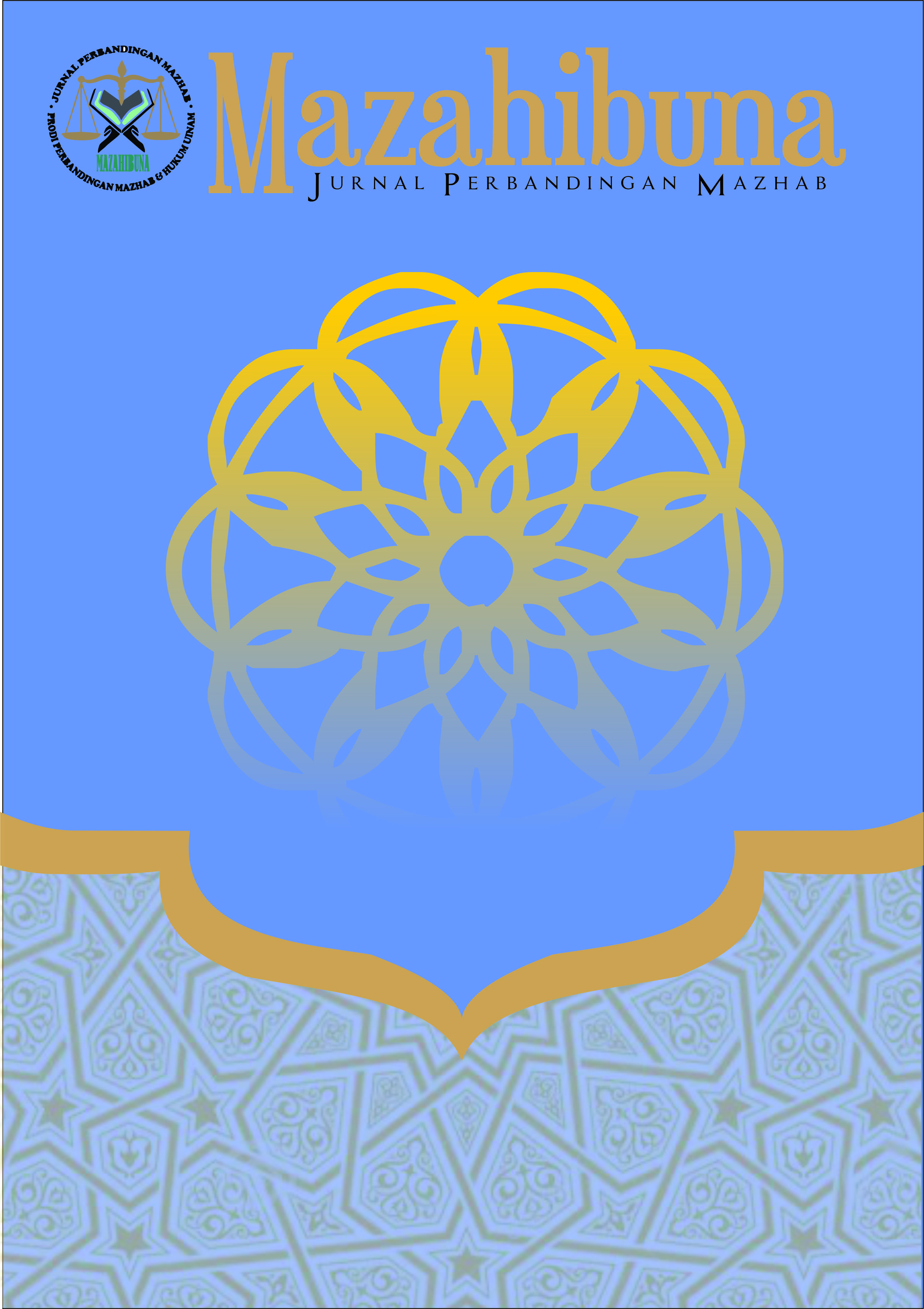Diskursus Maslahat Mursalah di Era Milenial; Tinjauan Filosofis terhadap Konsep Maslahat Imam Malik
Abstrak
Maslahat merupakan indikator kuat keberagamaan dalam Islam, maslahat dapat menjadi legalitas boleh tidaknya seorang muslim melaksanakan suatu amalan. Legalitas maslahat ini menjadi sebuah diskursus yang panjang di kalangan tokoh-tokoh pemikir hukum Islam klasik hingga kontemporer. Salah satu tokoh pemikir hukum Islam yang identik dengan maslahat adalah Imam Malik dengan konsep istislahnya (maslahat mursalah). Maslahat mursalah merupakan integrasi nilai-nilai dan tujuan syariah yang mengandung kebaikan-kebaikan bagi mukalaf akan tetapi maslahat mursalah ini harus melewati sebuah analisis filosofis sebelum diakui dan diterima kedabitannya. Maslahat is the stronge issue in the Islamic religiously, it stressed the legality of implementation of Islamic tenet. The legality of maslahat had become a long discourse between the Islamic law of their schoolars however classicly and contemporary thought. One of Islamic thought about maslahat is Imam Malik with his Istislah or maslahat mursalah. How ever, it consists of values integrated with syariah goals or maqashid syariah that contain many utulity for the mukallaf that must be understood by philosophy aproach.
Referensi
Akbar, Ali. Seksualitas Ditinjau dari Segi Hukum Islam. Cet. I; Jakarta: Balai Aksara, 1982.
Asmin, Yudian W. Filsafat Hukum Islam dan Perubahan Sosial. Diterjemahkan dari judul asli “Islamic Legal Philosofy A Study of Abu Ishaq al-Syatibi’s Life and Thought” karya Dr. Muhammad Khalid Mas’ud. Cet. 1; Yogyakarta: al-Ikhlas, 1995.
A. Sirri, Mun’im. Sejarah Fiqh Islam. Cet. 1; Surabaya: Risalah Gusti, 1995.
As-Shiddiqiy, Hasbi. Filsafat Hukum Islam. Cet. 4; Jakarta: Bulan Bintang, 1975.
Bakri, Asafri Jaya. Konsep Maqashid Syari’ah Menurut al-Syatibi. Ed. 1. Cet. 1; Jakarta: PT. Raja Grafindo Persada, 1996.
Bukhori, M. Islam dan Adab Seksual. Cet. II; Solo: Amzah, 2001.
Buti, Said Ramadhan. Dawabit al-Maslahah fi al-Syari’ah al-Islamiyyah. Damsyik: al-Maktabah al-Amawiyyah, 1969.
Djamil, Dr. Fathurrahman. Filsafat Hukum Islam. Cet. 1; Jakarta: Logos Wacana Ilmu, 1997.
al-Ghifari, Abu. Gelombang Kejahatan Seks Remaja Modern. Cet. I; Bandung: Mujahid Press, 2002.
Haroen, MA, Nasrun. Ushul Fiqh. Cet. 1; Jakarta; Logos, 1992.
Hasballah, Ali. Ushul al-Tasyri al-Islamiy. Mesir: Dar al-Maarif, 1976.
Khallaf, Abdul Wahab. Sumber-sumber Hukum Islam. Diterjemahkan oleh Anwar Rasyidi dari Masaadiru al-Tasyri al-Islamiy Fi Ma Lassa Fihi. Cet. III; Bandung: Risalah, 1984.
Munawwir, Said Aqil Husin. Dimensi-dimensi Kehidupan dalam Perspektif Islam. Malang: Pascasarjana UNISMA, 2001.
Qardhawi, Yusuf. Membumikan Syari’at Islam. Cet. 1; Surabaya: Dunia Ilmu Offset.
Shihab, Alwi. Islam Inklusif, Menuju Sikap Terbuka dalam Beragama. Cet. V; Bandung: Mizan, 1999.
Sa’abah, Marzuki Umar. Perilaku Seks Menyimpang dan Seksualitas Kontemporer Umat Islam. Cet. I; Yogyakarta: UII Press, 2001.
Syatibi, Abi Ishaq. Al-Muwafaqat Fi Ushul al-Syari’ah. Jilid II (Beirut: Lubnan, tt)
Surtiretna, Nina. Bimbingan Seks bagi Remaja. Cet. II; Bandung: PT Remaja Rosdakarya Offset, 2000.
Syafruddin, Ayip. Islam dan Pendidikan Seks Anak. Solo: Pustaka Mantiq, 1991.
Syukur, Syarmin. Sumber-sumber Hukum Islam. Cet. 1; Surabaya: al-Ikhlas, 1993.
Yahya Mukhtar dan Fatchurrahman, Dasar-dasar Pembinaan Hukum Fiqh Islam. Cet. 3; Bandung: al-Maarif, 1993.
Zahrah, Muhammad Abu. Ushul Fiqh. Cet. 2; Jakarta: PT. Pustaka Firdaus, 1994.
Zuhri, Muh. Hukum Islam dalam Lintasan Sejarah. Ed. 1. Cet. 1; Jakarta: PT. Raja Grafindo Persada, 1996.

This work is licensed under a Creative Commons Attribution 4.0 International License.
Authors who publish with Mazahibuna: Jurnal Perbandingan Mazhab agree to the following terms:
- Authors retain copyright and grant the Mazahibuna: Jurnal Perbandingan Mazhab right of first publication with the work simultaneously licensed under Creative Commons Attribution License (CC BY 4.0) that allows others to share the work with an acknowledgment of the work's authorship and initial publication in this journal.
- Authors can enter into separate, additional contractual arrangements for the non-exclusive distribution of the published version of the work (e.g., post it to an institutional repository or edit it in a book), with an acknowledgment of its initial publication in this journal.
- Authors are permitted and encouraged to post their work online (e.g., in institutional repositories or on their website) before and during the submission process, as it can lead to productive exchanges, as well as earlier and greater citation of published work.

